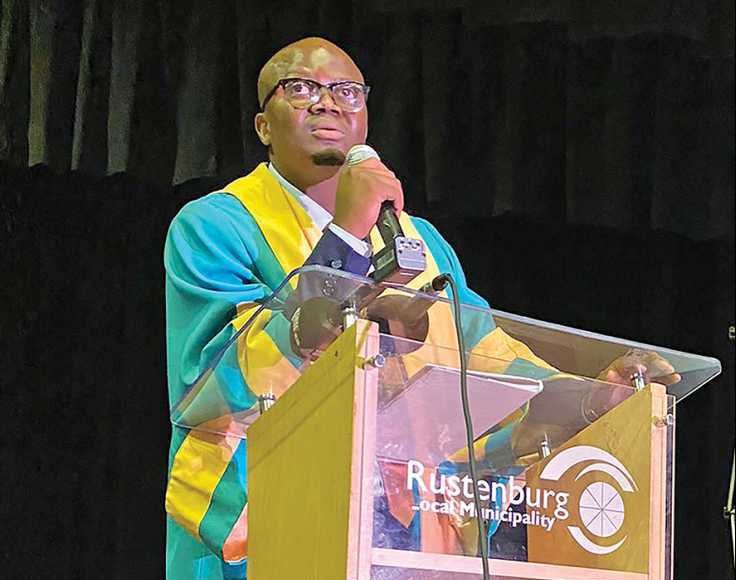Rustenburg local municipality speaker Koketso Mogomotsi is under siege after he allegedly refused to appear before the North West provincial legislature this week to account for the delayed R4-billion Rustenburg Rapid Transport (RRT) project.
Mogomotsi is said to have refused to appear, saying the entire municipal council should have been summoned, and not only him as speaker.
Chairperson of the portfolio committee on premier, finance, cooperative governance, human settlements and traditional affairs Aaron Motswana said it was unacceptable that the project, which was started in 2012, was still incomplete.
“It is sad to see the municipality’s Integrated Rapid Public Transport Network project that was supposed to be easily accessible to commuters being delayed. The main objective to convene a meeting with the municipality on RRT, was to measure when they intend to conclude the project,” he said.
Motswana said it is absurd that funding continues to be allocated to the project, but with nothing to show for it.
Mogomotsi, however, has said it is a work in process. “The municipal council was sitting on March 29 2022 to get an update on what is delaying the project. So, we have three phases, now there are some taxi owners who have the permits for certain roads and the buses cannot operate, while that is still pending,” he said.
“We have also launched an investigation after the auditor-general report raised issues regarding structural challenges at the bus stations,” he added.
Mogomotsi said the municipality has also received the strategy that will be used to pay off taxi owners who are affected by this project. He said the municipality has agreed to pay each taxi owner R1.2-million.
However, one of the taxi owners affected by the project, Phillip Sithole, said he no longer believes in the project, accusing the municipality of backtracking from an initial agreement to pay R1.3-million per taxi as a lump sum.
“My three minibus taxis will be affected, but the municipality has reverted from its initial agreement,” he said.
“Even though the RRT project has been designed to transform and replace most of the current mini-bus taxi services operating locally with a modern bus system, I do not believe in it anymore,” he said.
South African National Taxi Council deputy chairperson in the North West Herman Sebego, who also heads the project’s negotiating forum, said he hopes the municipality will speed up the process.
“Last year, before the municipal council elections, we managed to reach an agreement with the municipality after back-and-forth engagements. To be honest, we have agreed to pay R1.3-million to each taxi owner as compensation,” he said.
“Even though they targeted to remove 258 taxis from their routes as part of phase 1, only 67 minibus taxis have been removed thus far but the municipality has not paid those minibus taxi owners,” Sebego said.
“The municipality gave those minibus taxi drivers who were affected by this project an opportunity to become bus drivers. So, out of 72 taxi drivers who have already undergone training as part of phase one, only 47 have passed,” said Sebego.
Follow @SundayWorldZA on Twitter and @sundayworldza on Instagram, or like our Facebook Page, Sunday World, by clicking here for the latest breaking news in South Africa. To Subscribe to Sunday World, click here.




